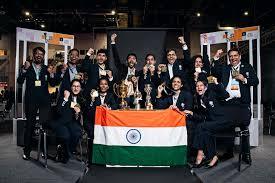

No Communal Angle in Ankit Saxena's Murder
India had enacted the Special Marriage Act (SMA) in 1954 to allow adult Indians to marry according to their choice regardless of religion, caste, parental and societal pressure. The legislature felt the need for such a law as it recognized that people of different communities can fall in love and can be prevented from marrying by families or society. The Supreme Court has, while hearing a petition against honour killings, reiterated that when two adults marry, no one has the right to interfere. But any law can be useful if society and social mores change accordingly. If anything, in these 64 years attitudes have hardened further. Khap panchayats employ their own law and those who believe in love jihad do the same, making a mockery of the SMA. No caste or community is immune from this disease of not letting their girls and boys marry outside the immediate caste or community. In their eyes, love is a useless thing and love with someone outside the caste or community is sacrilege.By Sunil Garodia
First publised on 2018-02-05 21:03:14
The murder of Ankit Saxena in Delhi needs to be seen in this light. He was guilty of loving a Muslim girl. The girls family did not approve. They killed him by stabbing him and slitting his throat near his home on a busy Delhi road. Not one bystander intervened to stop them and save Ankit. Social mores have not kept pace with the times and many families are not yet prepared to accept inter-caste marriages, let alone inter-religious ones. In a famous case some years back, a well known, Kolkata-based industrialist in the knitting industry was accused of abetting the suicide (some say it was murder) of a Muslim boy for having the temerity to marry his daughter. These incidents are not communal in the sense that communal frenzy or planning is not attached to them. It is the decision of individual families to act in a pre-meditated manner to eliminate the one who pursues their son or daughter. While it is sad, diabolical and regrettable, it is definitely not communal.
Hence, one is grateful that Ankits grieving father has appealed to all not to give a communal colour to his sons murder. He said that "I don't want any inflammatory statements. I feel very saddened by what happened, but I don't want anyone to create a hostile environment against Muslims. I have nothing against any religion. Yes, those who killed my son were Muslim...but every Muslim can't be branded for this. Don't use me to spread communal tension, don't drag me into it. I appeal to everyone not to link this to religion and vitiate the atmosphere." One hopes that professional troublemakers are listening. The administration did a wonderful job in arresting the members of the girls family who committed the murder. Since it was pre-meditated and done in cold blood, one hopes that the fathers plea that his sons murderers be hanged is upheld by the courts.











